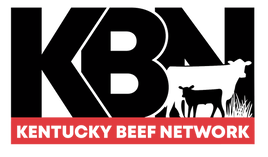What is Holistic Grazing Management?
A group of Kentucky producers and county agents had the opportunity to visit Greg Judy’s farm last month. Judy runs a unique cow/calf operation near Harrisburg, Missouri. He explained that he learned these methods from Allan Savory, who began holistic management while raising livestock in South Africa. After visiting Judy’s farm, I wanted to know: What is holistic management?
Holistic management is a method of managing the land in a way that mirrors nature. With less artificial inputs and actions, advocates believe that by managing holistically, the land, animals, water, and world will be healthier. Inputting less also has economic benefits.
Whether it be farmers, gardeners, or landscapers, the idea is to think of oneself as a land manager trying to guide and regulate a healthy relationship between land, animals, and water. The idea is to keep or return the land to a healthy, productive state by using the resources already available. This means using minimal equipment, technology, and money. Livestock is used as a tool to increase soil fertility and plant life. Incorporating plant organic matter and manure into the soil promotes the recycling of nutrients. These are just a few of the management skills that are used in holistic management.
The system is based on a rotational grazing system but doing so at high densities for short intervals. This system would be better classified as mob grazing. In Beef Magazine, Bruce Anderson defines mob grazing as, “...a practice where a large concentration of animals are restricted to graze a small area, usually for a very short period of time.” The suggested stocking density is around 300,000 lbs. livestock per acre. This high stocking density increases total forage use, manure distribution, and if done correctly, gives forages an adequate regrowth period.
An important factor to managing holistically is to monitor the land carefully and to be observant. Being able to predict changes in the land and environment and having the ability to prepare for adverse conditions is vital. Anticipating unfavorable grazing situations is also important.
According to Holistic Management International there are numerous benefits of implicating this system. Less inputs and overall costs reduce spending and in the end, the manager is making a greater profit. Healthier and more productive land can support a larger number of healthy livestock. Increased microbe activity, organic matter, and water-holding capacity of the soil are other advantages. Holistic Management International argues that this system produces cleaner water, more wildlife habitats, increased food security, and less pollution. Allan Savory believes that holistic management,”...ensures economic, ecological, and social soundness.”
Categories:
Summer
Grazing Systems


